What are plantar warts and how are they caused?
Plantar warts are small, rough, round growths that are medically known as verrucae and present on the bottom of the foot. They’re caused by a virus called the Human Papilloma Virus (HPV) in the outer skin layer and are often contracted in childhood. Once you’ve contracted the virus, you’ll always have it in your system, so plantar warts may pop up spontaneously throughout your lifetime.
Most warts are harmless and benign, even though painful. They are often mistaken for corns, which are layers of dead skin that build up to protect an area which is being continuously irritated. Although they are not overly common, it is also possible that a variety of other more serious lesions, including carcinomas and melanomas, can be mistakenly identified as warts. Because of those identification problems, it is wise to consult a podiatrist about any suspicious growth or eruption on your feet.
The HPV virus is spread through direct contact. If you have a break in the skin, like a small cut or graze, then you may contract the virus through sharing the same surface like a shower or a floor. Immune systems do respond differently and not everyone that comes in contact with the virus will develop plantar warts. Similarly, a weakened immune system may make you more susceptible. Because the virus thrives in warm, moist environments, it is often contracted in changing rooms, at public swimming pools and at gyms.
What are the signs and symptoms?
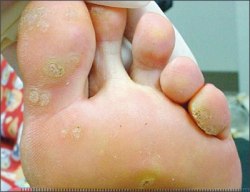
Plantar warts are relatively small and often have a rounded but rough-edged appearance. Other signs include:
- Small black pinpoint dots (blood vessels)Bumps over the surface of the warts
- Present singularly on in multiples
- The lines of the skin of the foot go through the wart
- May be covered by callus
- Pain on squeezing the wart from the sides
- Pain or tenderness on walking
Tips for Prevention
- Avoid walking barefooted, except on sandy beaches
- Always wear a jandal in public bathing facilities. Wear right up to the pool edge
- Change shoes daily
- Keep feet clean and dry
- Check children’s feet periodically
- Avoid direct contact with warts — from other people and from other parts of the body
- Do not ignore skin growths or changes in your skin
Self-Treatment
Self treatment is generally not advisable. Over-the-counter preparations contain chemicals, such as acid, that destroy skin cells. It takes an expert to destroy abnormal wart cells without also destroying surrounding healthy tissue. Self-treatment with such medications especially should be avoided by diabetics and those with circulation problems which cause insensitive feet. Never use them in the presence of an active infection.
Podiatric Treatment
Typically the age of the patient and the severity of infection will determine the type of treatment we use on our patients.
Blunt Dissection
When warts are very few, the area is numbed with local anaesthetic and a procedure called a blunt dissection is used. There is very little pain after the treatment, and normal activities can usually begin within one day, though you will need to put your foot up that night! The advantage of this procedure is that it normally requires only one treatment.
Topical Treatments
For younger patients, those wary of injections or if there are multiple infections we usually recommend a topical chemical treatment. Treatments like this may multiple follow up treatment, usually taking around 15 minutes.
As always, if you want to ask one of our podiatrists a question, feel free to phone us and we’ll try and help.
Here’s a little video of our team having fun when one of our staff needs a wart removed!
Results From Our Clinic
Here’s an example of some results from one patient in our clinic:





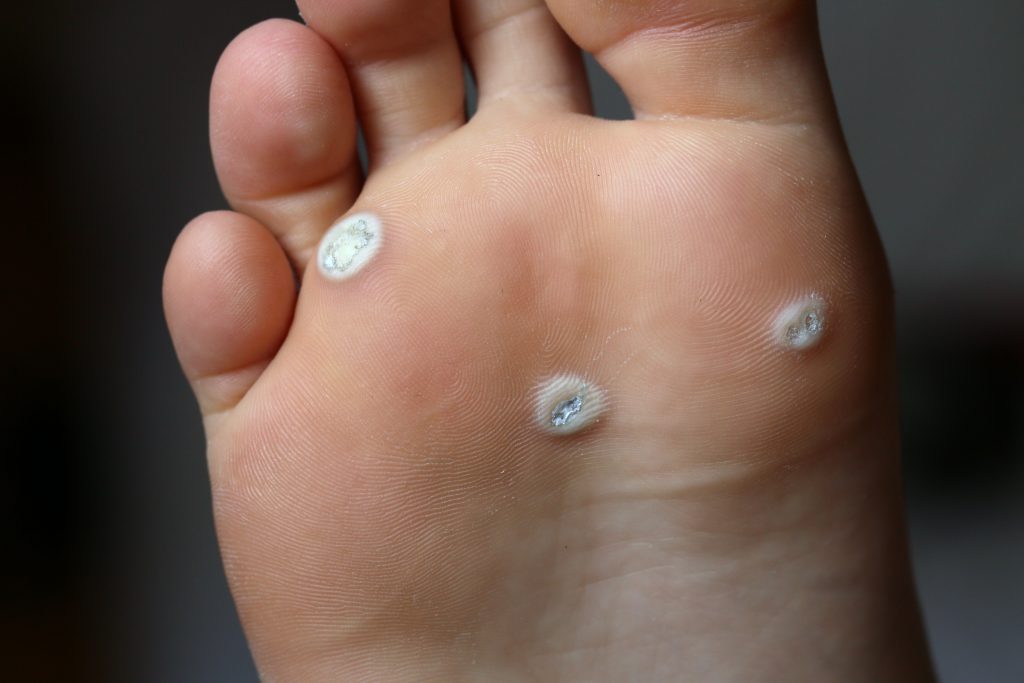
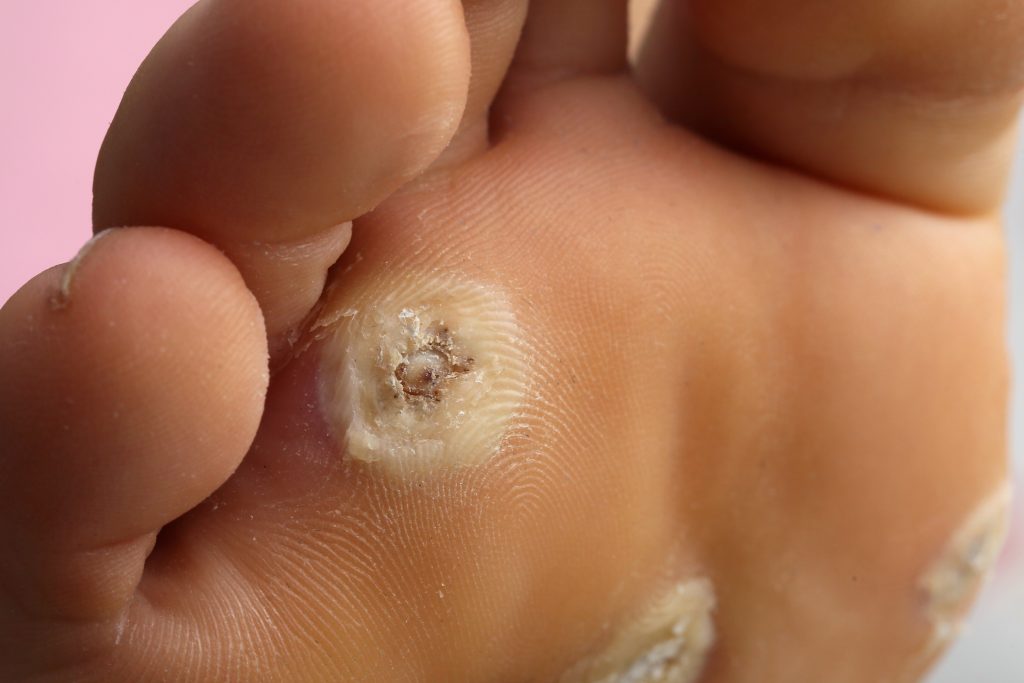
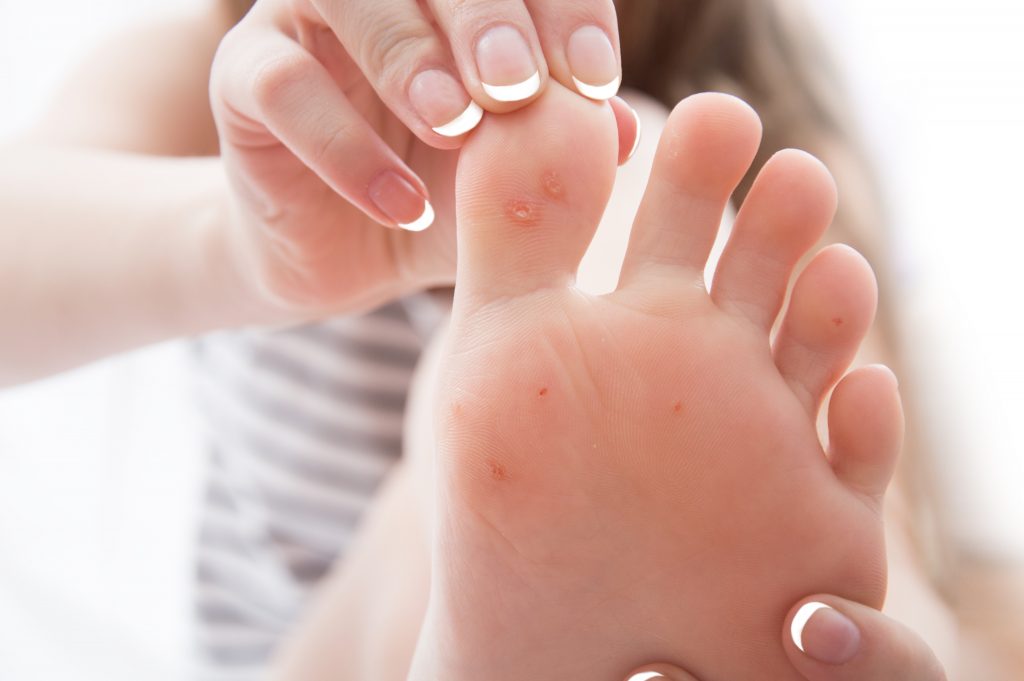
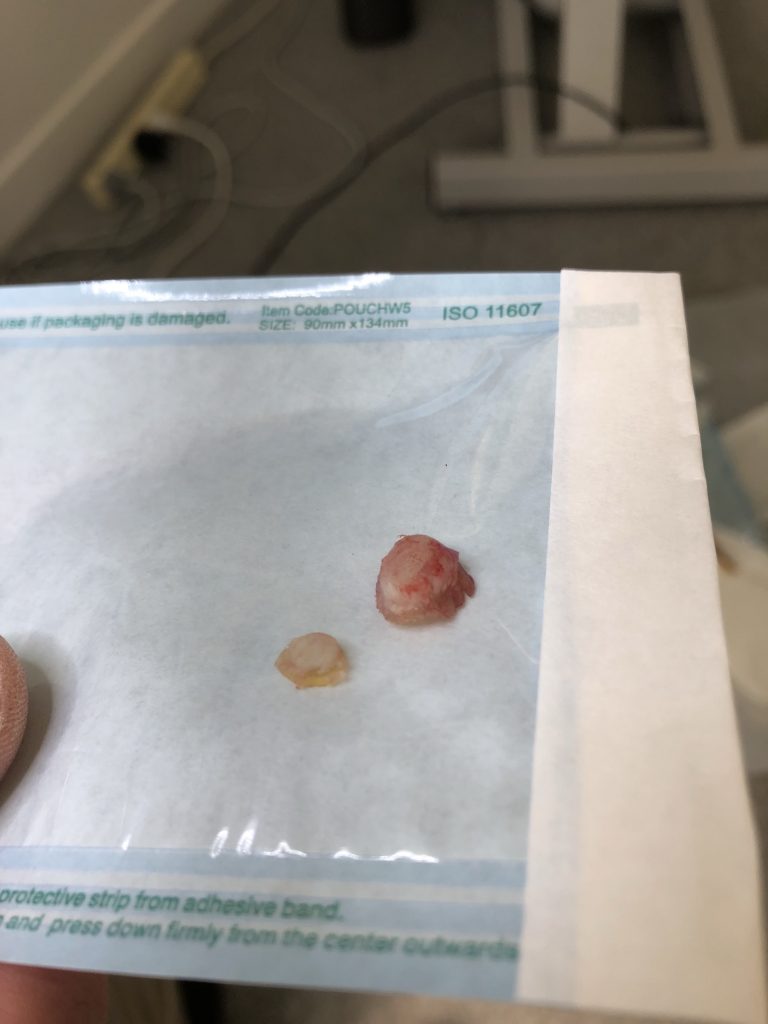 Warts do extend significantly beneath the skin surface, and recruit their own blood supply to sustain the wart tissue. How deep they get does depend on their size, with an average-sized wart that our podiatrists see extending approximately a centimetre below the skin. The image to the right shows a wart being scooped from the foot so you can see how deep it extended.
Warts do extend significantly beneath the skin surface, and recruit their own blood supply to sustain the wart tissue. How deep they get does depend on their size, with an average-sized wart that our podiatrists see extending approximately a centimetre below the skin. The image to the right shows a wart being scooped from the foot so you can see how deep it extended.